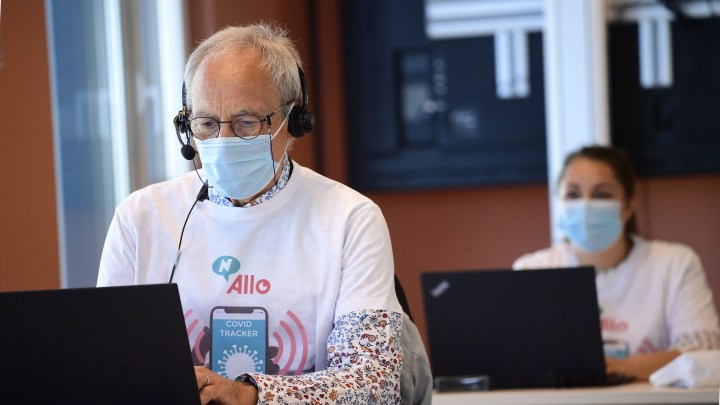
The search for contact tracers

Even as we’re seeing states reopen and COVID-19 cases rise, we still don’t have enough contact tracers. Those are the people who call you when you’ve been exposed to someone with COVID-19 and walk you through the next steps.
It’s estimated we’ll need anywhere from 100,000 to 300,000 more contact tracers. To be one, you need a script, a phone and the ability to talk to people. Christiana Coyle has done contact tracing for the national Centers for Disease Control and Prevention.
“You’re part-social worker, you’re part-counselor, you are part-public health professional,” Coyle said. “You are delivering information that is disturbing.”
Some states ask for a high school degree, others years of experience in health care. Epidemiologist Amanda Castel has been helping the D.C. Department of Health train people.
“These teams of contact tracers are familiar with the communities in which they are working, the dynamics and the nature of where people live,” Castel said.
New York is partnering with foundations. Contact tracers there will make $57,000 a year. Lori Tremmel Freeman, CEO of the National Association of County and City Health Officials, said the federal government gave states money to respond to COVID-19.
“Not all places have the resources they need to do it,” Freeman said. “There may be some areas of the country that are overresourced because they receive funding but they don’t have the same amount of cases as other parts of the country.”
In New Jersey’s Middlesex County, school nurses are working as contact tracers. In east Texas, firefighters. At the University of California, San Francisco, Laura Buback has been training assessors and librarians.
“It’s more like repurposing of people already in the city and the health system to work on this,” Buback said.
But despite this flexibility and high unemployment, finding enough contact tracers is likely to remain a challenge.
There’s a lot happening in the world. Through it all, Marketplace is here for you.
You rely on Marketplace to break down the world’s events and tell you how it affects you in a fact-based, approachable way. We rely on your financial support to keep making that possible.
Your donation today powers the independent journalism that you rely on. For just $5/month, you can help sustain Marketplace so we can keep reporting on the things that matter to you.

















